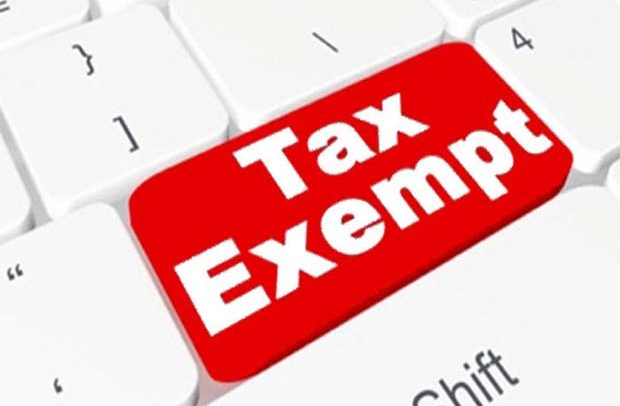GHANA HAS been granting tax exemptions and getting virtually nothing in return. Meanwhile, higher and more taxes are imposed on citizens repeatedly. Public sector workers are asking government to pause and rethink the exemptions which are a drain on government revenue.
Ghana’s low and declining tax efforts make it extremely disturbing for the country to grant so many tax exemptions and get nothing in return. Tax revenue is only 14 percent of GDP, a much smaller figure than many African countries. On the other hand, expenditures depending on the taxes, are high and growing. Overall, national expenditures hover between 23 and 27 percent of GDP while revenues stand between 12 and 15 percent. The resulting budget deficits account for the growing national debt.
Agreeably, there is a need to raise the tax-GDP ratio through direct taxes. Direct taxes are more progressive and relieve the overburdened citizens from new and higher taxes.
However, it is equally important to revisit the revenue losses that the country is incurring through tax exemptions. For example, most of the exemptions to the Export Processing Zones (EPZ) enterprises do not make economic or social sense.
A country gives tax exemptions to derive specific benefits. In the case of the EPZ, the expected benefits are export revenue, employment, technology, and skills transfer. Unfortunately, studies reveal that Ghana gives away much-needed tax revenue without getting commensurate benefits.
Exports from EPZ are lower than other enterprises in the domestic economy. In addition, available figures show that employment is much lower than anticipated.
Besides, the quality of jobs is unacceptable or appalling; some of the employees do not enjoy social security, minimum wage and other minimum decent work standards enshrined in the laws of the land.
Meanwhile, it is common knowledge that skills development and technology transfer do not happen without decent work standards.
It is expected that EPZ enterprises engage in value-added processes that increase export earnings.
However, this does not always happen. For example, some enterprises have turned their operations into warehousing outposts instead of manufacturing centres.
Some also sell more than 30 percent of their produce on the domestic market, in contravention of the law.
As a result, they compete with producers on the local market to the detriment of local competitors who do not benefit from exemptions.
The disappointing performance of the enterprises in EPZ is due to several factors, including legislative, regulatory, policy weaknesses, institutional, and monitoring challenges. Therefore, Public Sector Workers Unions find it gratifying that Ghana’s Parliament is considering a Bill on Tax Exemptions. However, for now, as a public sector workers’ group, we respectfully make the following recommendations to parliament to: (1) Rethink the idea that a company can be declared as a single factory zone. It hampers effective monitoring of the operations of the FPZ Enterprises to ensure that they comply with the terms and conditions for which they are enjoying the tax exemptions; (2) Empower the Ghana Revenue Authority, the Free Zones Authority, and other relevant institutions to undertake an independent assessment of the operations of eligible free zone enterprises for continued eligibility or otherwise of the tax exemptions they enjoy. The independent report on the operations of the free zone enterprises must look at the number of Ghanaians employed. We must also assess the quality of the employment the companies offer to Ghanaians. In addition, Government must take an interest in whether the employees receive at least the minimum wage, are registered for social security and enjoy the statutory benefits stated in the country’s laws. Finally, there is a pressing need to review the Free Zones Act (Act 504, 1995) and align it with modern trends, including operations of the digital economy and e-Commerce. This review should also allow the phasing out of single factory enclaves that complicate monitoring and enforcement.
Ghana must pause and rethink wasteful tax exemptions in the face of a multiplicity of excessive and burdensome indirect taxes.
Issued by National Coordinating Committee (NCC) of Public Sector Unions in Ghana.


